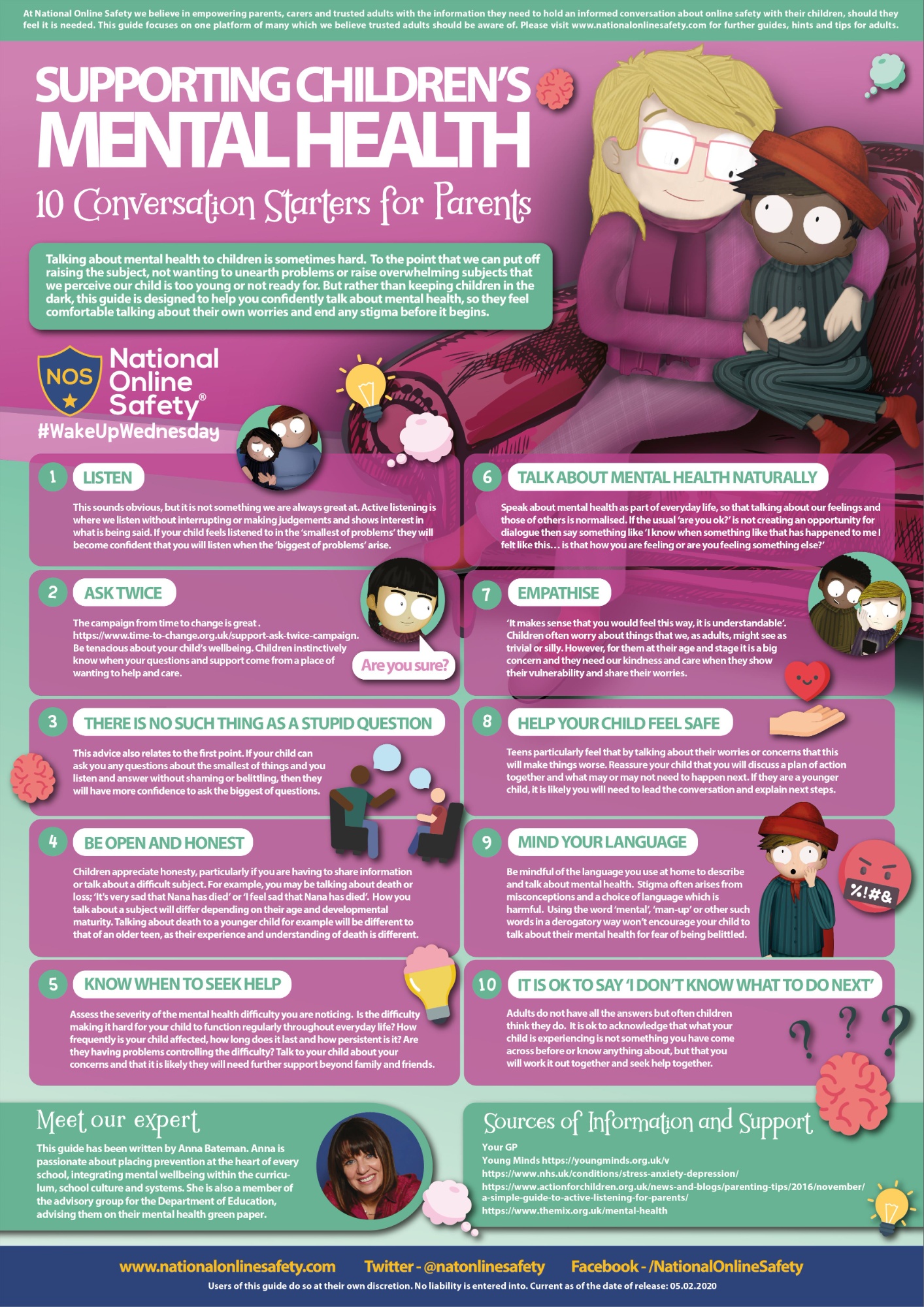Wellbeing for Parents
At Broad Chalke we believe in promoting positive health and wellbeing for every member of our community.
We know parenting comes with lots of challenges, which can be heightened if your are struggling with your mental health.
The NSPCC considers mental health problems are conditions like:
- anxiety disorders
- bipolar disorder
- depression
- obsessive-compulsive disorder
- personality disorders
- post-traumatic stress disorder
- schizophrenia
Sometimes these conditions can affect parenting and inhibit people's ability to support children effectively.
NSPCC 10 mental health tips for parents

Trying new or different coping strategies can help support your mental health and lower stress in a positive and interactive way.
If you have coping strategies that work well for you, keep doing them – whether that's mindfulness, walking or as simple as taking 5 minutes for yourself.
- Being physically active might help your mental health. It also helps boosts your immune system and can help encourage your children to exercise too. You could try walking, going for a jog or doing an online class. If these don't suit you, you could try a gentler activity like gardening, sitting next to an open window to get some fresh air or doing a crossword.
- Maintain a regular sleeping pattern if possible. The NHS have tips and advice to help.
- Keep in touch with family and friends on the phone or try a video call.
- It's important to be healthy and eat well. We know it's not easy for everyone, and if you need help with getting essentials you can contact your local food bank.
- Keep a journal. Writing down your feelings can help you reflect, understand and let go of emotions.
- Join a support group or network online. Talking to others in a similar situation can help. netmums.com offers forums for both mums and dads.
- Create mini zones in the home where possible, allowing everyone to have space. If this isn't possible, try spending set amounts of time in different rooms if you can.
- Try to have some time for yourself, whether that's within your home or by going for a walk. We have advice if you're not sure if your child is old enough to stay home alone.
- Managing how you keep on top of the latest news can help reduce anxiety. You could create limits on how much time you spend on social media and set 1 or 2 specific times of the day you check the news. Staying up to date can help you support children with any questions they may have but it's also important to take care of your own wellbeing.
- Making a plan of things to do by yourself or with your child can help create structure and a routine for the day. Try starting your day with a short list of 4 small, achievable things you'd like to do. If there's another adult in your house or older children, ask them to play an active part too. But, if you're struggling with your mental health and emotional wellbeing it's okay to do the best you can and recognise there will be good and bad days.
Other organisations providing support to children and families include:
- Mind
information and support as well as helplines for people experiencing mental health problems and their friends and families. - Rethink Mental Illness
Advice as well as services and support for people affected by mental illness and their friends and families. - Samaritans
Round-the-clock confidential support to people going through a tough time. - SANE
Emotional support to people affected by mental health problems and their families and friends
For additional support with how to help your child /children please follow this link
- Baby parenting
- PANTS the underwear rule
- Talking to your child about difficult topics
- Alcohol, drugs and parenting
- Separation and Divorce
- Mental health and parenting

